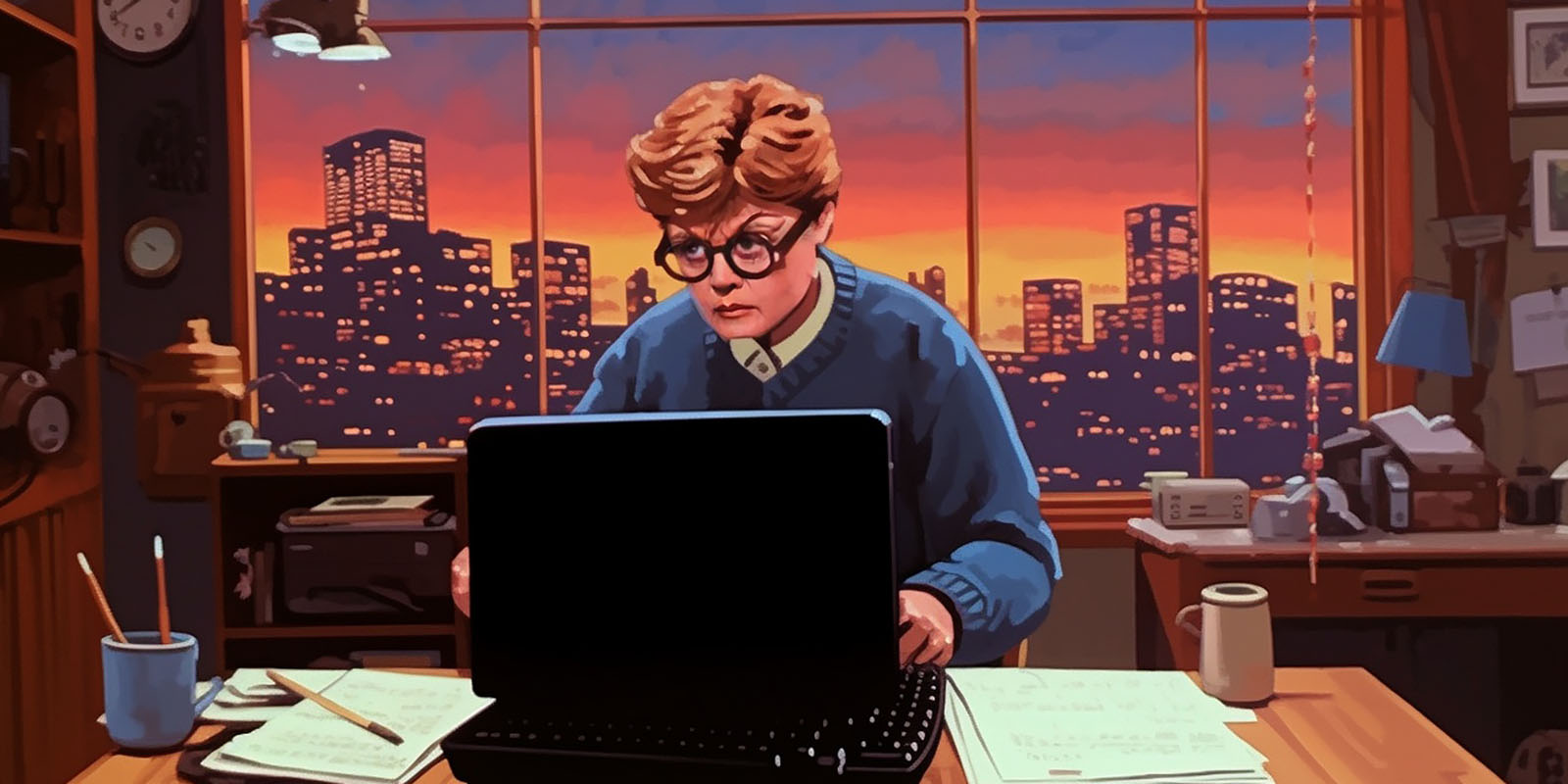I was recently watching an episode of Murder, She Wrote from 1991 where Jessica Fletcher (played by the late, great, Dame Angela Lansbury) was finally forced to abandon her trusty typewriter for a computer. This was treated as a Very Big Deal, and the store that sold her a new PC also ran classes to help new computer owners come to grips with their purchase. When we see her in class later in the episode, the other students complain about how mind-bogglingly difficult computers are, and many of them struggle to grasp the idea that computers might actually make their lives easier. To a modern audience, the whole idea of needing a special class to learn how to use a basic PC seems laughable, and many of the cutting-edge technologies that are mentioned in dialog are now about as outdated as the abacus (the salesman actually asks her if she wants a CD-ROM!). The episode is a relic of a bygone era when digital literacy was much rarer. Of course, teaching the characters in Murder, She Wrote about digital literacy was a fairly straightforward affair, but that’s not the case in 2023.
What is digital literacy?
Jessica Fletcher may have been able to learn how to use MS Word and call it a day, but nowadays digital literacy requires a far more comprehensive knowledgebase. As this LinkedIn post by Yottabyte notes, it’s “about effectively navigating a world that has been transformed by technology, whether in your personal, cultural, educational, or professional life. The ability to move seamlessly across platforms and applications using your acquired digital skills is crucial.”
Many of us interact with a dizzying array of digital technologies, from social media apps to smart thermostats. Consequently, someone who aspires to be digitally literate in 2023 must be able to work across platforms.
But digital literacy can be a tremendous asset. As the Yottabye article explains, it can promote efficient communication, enhance problem-solving skills, improve creativity, and enable us to do the things we need to do faster and smarter. Techboomers suggests some other ways it can help, such as offering networking opportunities and providing access to a wide array of information.
Why is digital literacy important?
Digital literacy is particularly important for content creators. The Web is a gallimaufry of different types of media, from long-form prose and in-depth video essays to microblogs and brief video snippets. Game-changing tools such as generative AI allow creators to stoke their creativity in new and exciting ways. Digital literacy offers a path to understanding as well as utility.
Having a versatile array of digital skills is particularly important for content creators. Jade Blue breaks digital literacy down into three facets: using tools and digital content, sharing and interacting online, and safety and wellbeing online. The American Library Association has also identified a framework for digital literacy that revolves around finding, understanding, evaluating, creating, and communicating, but that’s a topic for next week.
- Using tools and digital content. This is arguably the foundation on which the other two facets rest. On the most basic level, it can mean using a Content Management System (CMS) to produce long-form content, but knowing how to hit the ‘publish’ button isn’t enough. For example, you also need to understand things like how to use tags to make your content more discoverable and how to optimize your content for a variety of different platforms. It can also mean embracing new technologies, such as AI, in order to improve your content and make your life as a creator easier.
- Sharing and interacting online. As we’ve stressed repeatedly on this blog, it’s not enough to simply produce good content and let it stand on its own. You’ll also need to build up a community. Not only will this make your readers more likely to come back, but it will also encourage them to tell others about your content. One of the best ways to build a community is by using digital tools to share content and interact with them. This might mean using social media to share interesting content (both your own and others), or it might mean using something like Discord to create a social hub where your audience can come together to learn and socialize with one another.
- Safety and wellbeing online. As my colleague Jason pointed out, the Web isn’t always known for being a happy place. Internet trolls are only part of the problem. Because many of our interactions with others are mediated through the written word, they’re divested of the ameliorating effects of body language and tone of voice. As a result, even a good-faith criticism can feel far sharper than its author intended, which in turn can provoke a choleric response that causes the discussion to tumble downhill. There are also bad actors out there who can seriously harm you if you aren’t careful, so it behooves you to be careful about the kind of information you share online (there’s a reason many content creators use PO Boxes for fan mail!).
Digital literacy is absolutely essential
Digital literacy is vital to our lives in the 21st century. With so much of our lives taking place in a technological milieu, it’s imperative that we know how to use these tools. Digital literacy can promote efficient communication, enhance problem-solving skills, improve creativity, and produce diverse content that resonates with a broad audience. It can also expand our horizons and inform our decision making. More specifically, digital literacy means knowing how to use the best tools for the job as well as knowing how to organically engage an audience. It also means being smart about the kind of things you reveal online to lessen the fact that your life or your reputation could be negatively impacted by bad actors.








